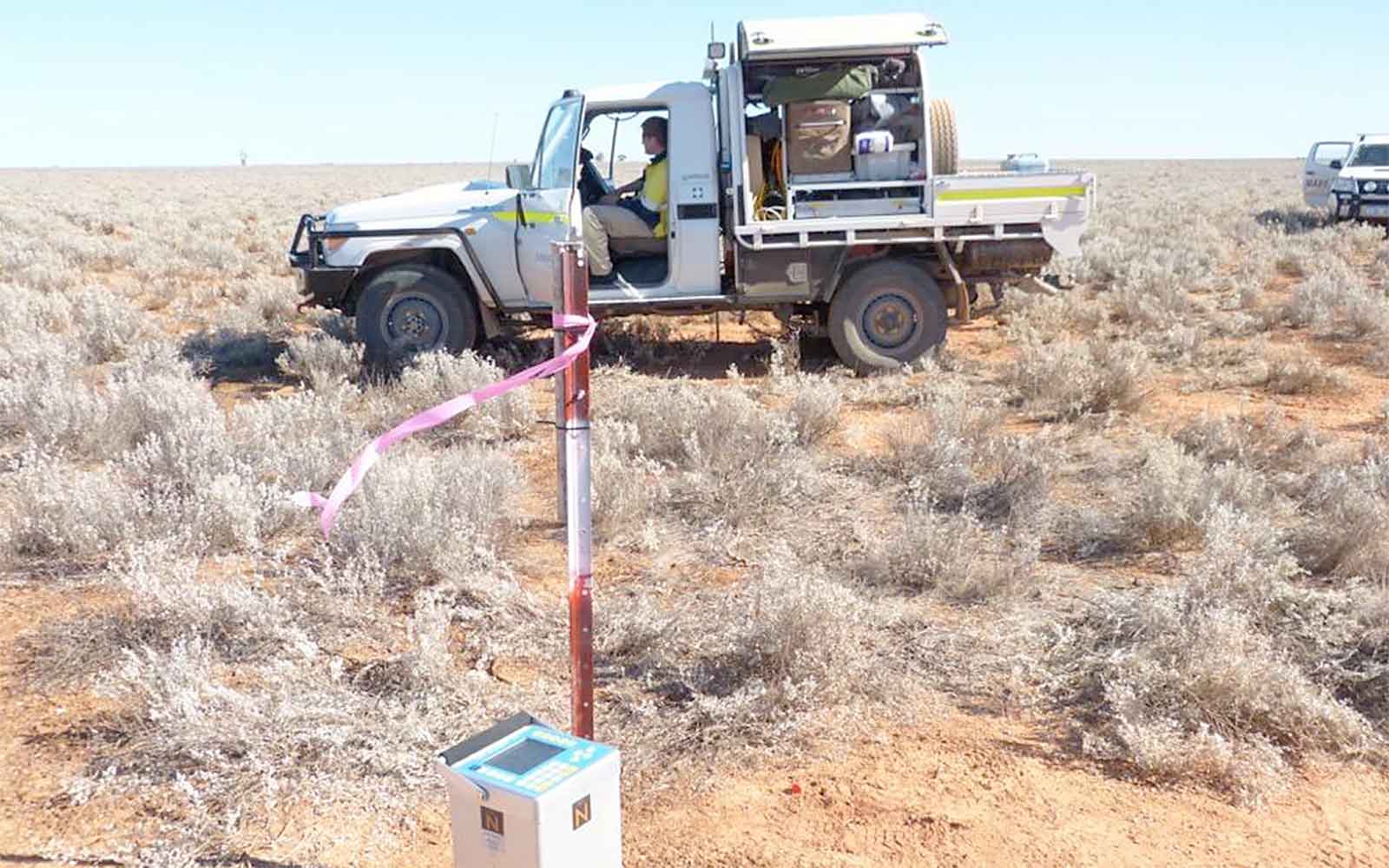Gravity Geophysics Methods
A potential field geophysical technique used to record accurately localised variations in the earth’s gravitational field.

Applications
- Geological mapping
- Karstic and void detection
- Mineral exploration
- Depth of sediments
- Archaeology
Method
Microgravity is a potential field geophysical technique used to record accurately localised variations in the earth’s gravitational field. The variations in gravitational readings are caused by density contrasts of the rocks and sediments beneath the reading location. Thus measurements of gravity are an indicator of the different subsurface rock densities and through careful interpretation, an accurate image of the subsurface can be inferred. For near-surface investigations, local variations in the gravity field are influenced by factors such as the bedrock depth, overall density of the subsurface material as well as fracturing and voids typical in karst environments.
Gravity surveys are acquired using highly sensitive instruments that have the capability of measuring very minute variations in the earth’s gravitational field. In a typical survey the gravity acquisition system is positioned at specific locations at equal distances, levelled and then allowed to run automatically until a stable gravity reading is achieved. The system is then moved to the next successive locations to acquire further readings. Generally, the deeper the target anomaly the larger the diameter would need to be to produce a recordable gravity anomaly.
Data Analysis & Presentation
After correction of gravity datasets for elevation, earth tidal effects, topography, latitude and instrument drift a plan view image showing variations in the Bouguer Gravity measured in milliGals can be produced. Note depth information to targets generally cannot be obtained using microgravity.
Featured Work
GBG investigates a wide range of structures from historically significant buildings to small private residences.
Enquire Now
Complete the form below, call us at +1 917 297 0913 (New York office), +1 805 393 2021 (Boulder CO office) or +1 310 745 9301 (Los Angeles office). A member of the team will respond ASAP to discuss your requirements.
Please note: GBG Group is compliant with the General Data Protection Regulation (GDPR). To learn more about how we collect, keep, and process your private information in compliance with GDPR, please view our privacy policy. *




